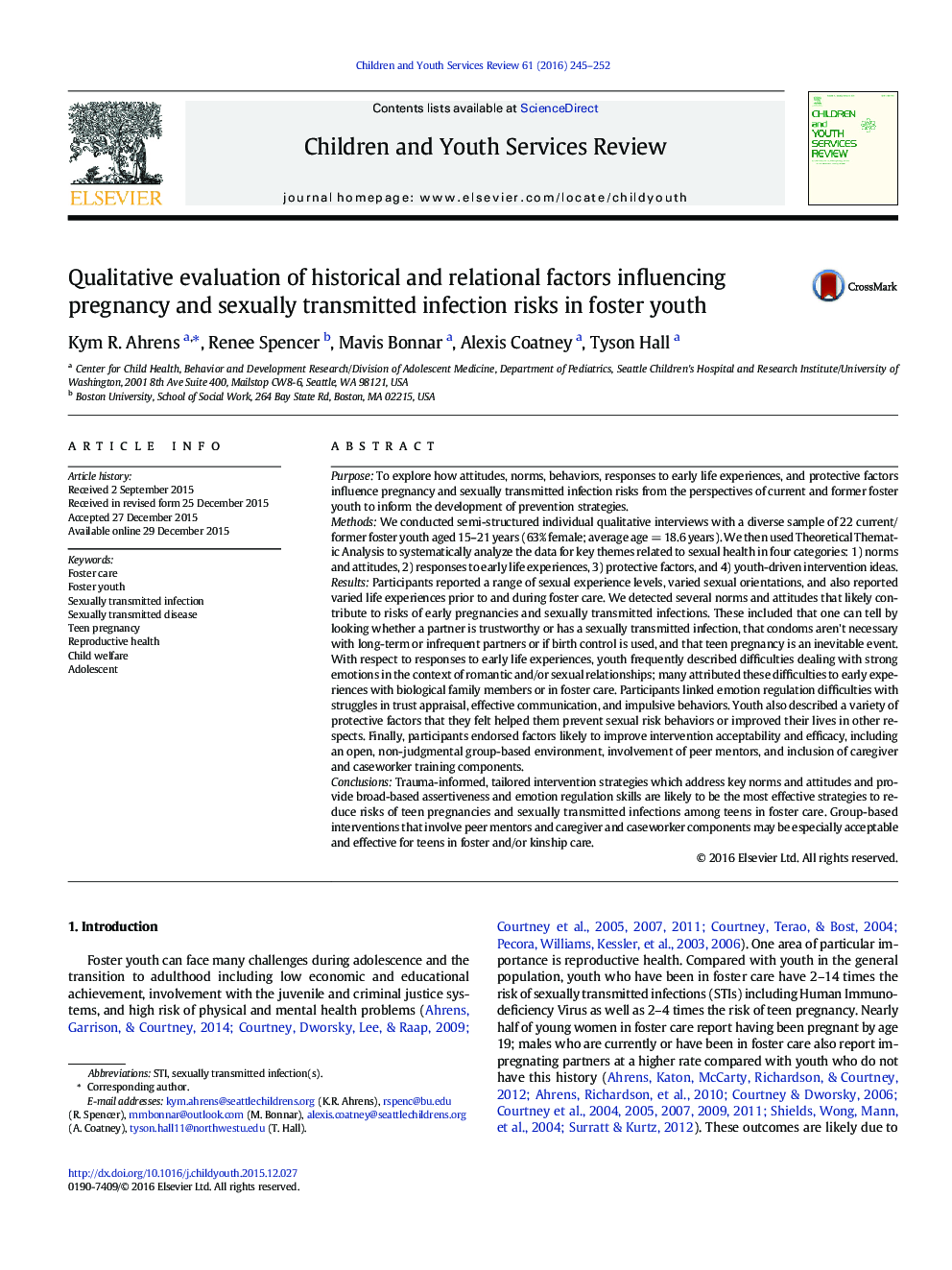| کد مقاله | کد نشریه | سال انتشار | مقاله انگلیسی | نسخه تمام متن |
|---|---|---|---|---|
| 345896 | 617772 | 2016 | 8 صفحه PDF | دانلود رایگان |
• Foster youth perceive many norms & attitudes that contribute to pregnancy/STI risks.
• Emotion regulation difficulties also influence trust, communication, & impulsivity.
• We present recommendations for sexual health interventions for foster youth.
PurposeTo explore how attitudes, norms, behaviors, responses to early life experiences, and protective factors influence pregnancy and sexually transmitted infection risks from the perspectives of current and former foster youth to inform the development of prevention strategies.MethodsWe conducted semi-structured individual qualitative interviews with a diverse sample of 22 current/former foster youth aged 15–21 years (63% female; average age = 18.6 years). We then used Theoretical Thematic Analysis to systematically analyze the data for key themes related to sexual health in four categories: 1) norms and attitudes, 2) responses to early life experiences, 3) protective factors, and 4) youth-driven intervention ideas.ResultsParticipants reported a range of sexual experience levels, varied sexual orientations, and also reported varied life experiences prior to and during foster care. We detected several norms and attitudes that likely contribute to risks of early pregnancies and sexually transmitted infections. These included that one can tell by looking whether a partner is trustworthy or has a sexually transmitted infection, that condoms aren't necessary with long-term or infrequent partners or if birth control is used, and that teen pregnancy is an inevitable event. With respect to responses to early life experiences, youth frequently described difficulties dealing with strong emotions in the context of romantic and/or sexual relationships; many attributed these difficulties to early experiences with biological family members or in foster care. Participants linked emotion regulation difficulties with struggles in trust appraisal, effective communication, and impulsive behaviors. Youth also described a variety of protective factors that they felt helped them prevent sexual risk behaviors or improved their lives in other respects. Finally, participants endorsed factors likely to improve intervention acceptability and efficacy, including an open, non-judgmental group-based environment, involvement of peer mentors, and inclusion of caregiver and caseworker training components.ConclusionsTrauma-informed, tailored intervention strategies which address key norms and attitudes and provide broad-based assertiveness and emotion regulation skills are likely to be the most effective strategies to reduce risks of teen pregnancies and sexually transmitted infections among teens in foster care. Group-based interventions that involve peer mentors and caregiver and caseworker components may be especially acceptable and effective for teens in foster and/or kinship care.
Journal: Children and Youth Services Review - Volume 61, February 2016, Pages 245–252
